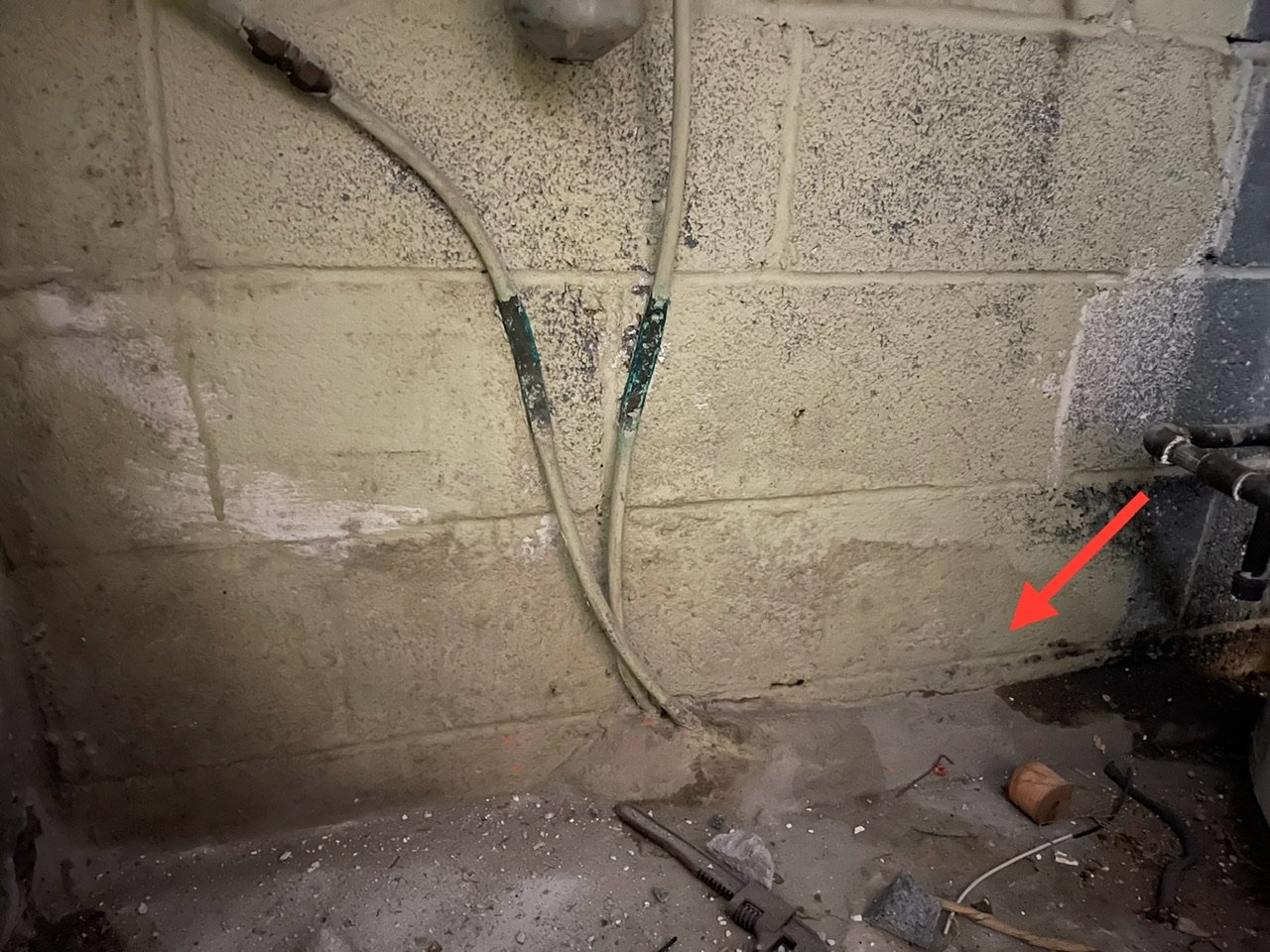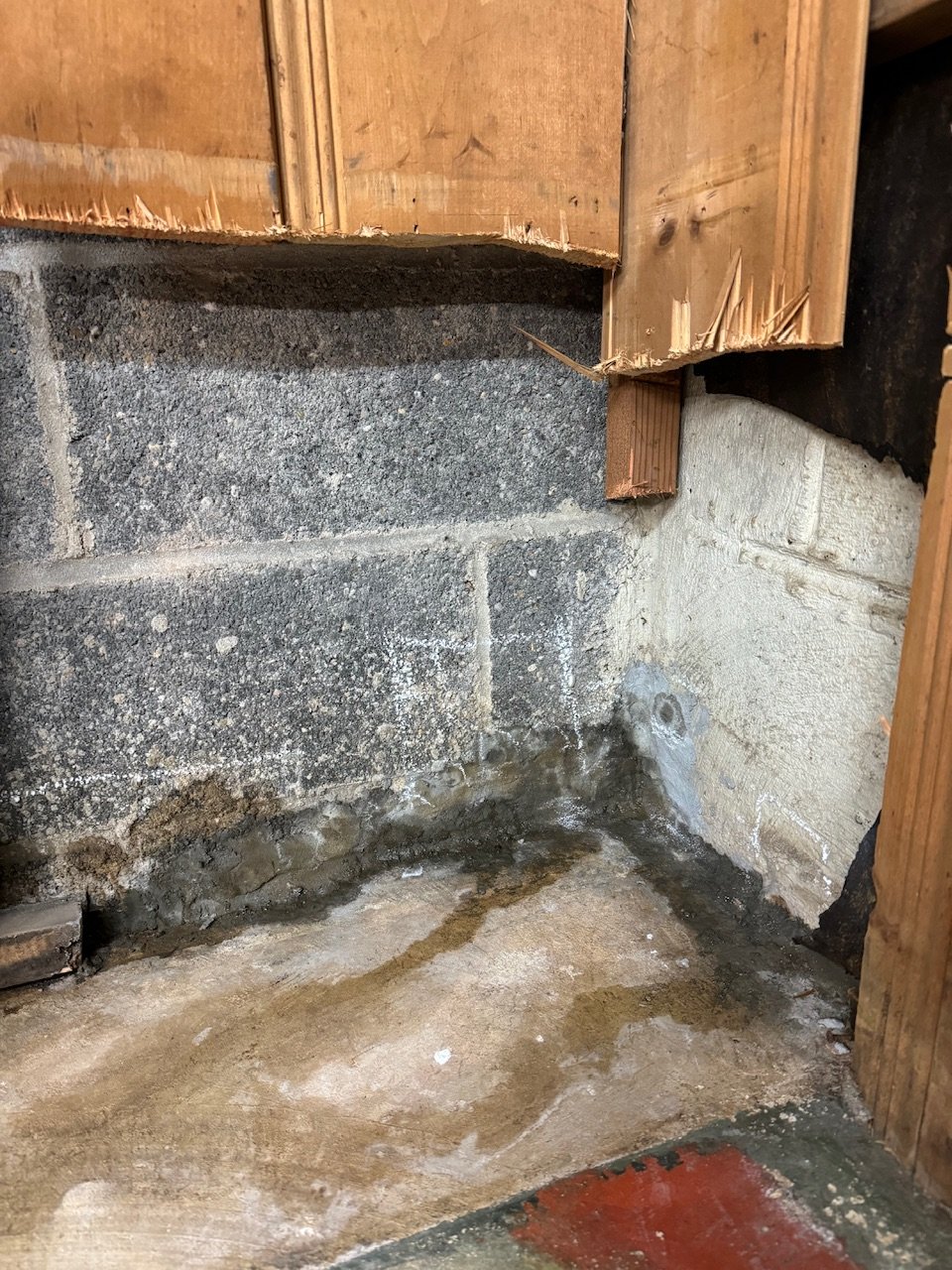1950s house with block foundation. I’ve patched these areas with hydraulic cement. That didn’t work so I stripped and cleaned the areas thoroughly then repatched. It improved but still getting lots of leaking where the foundation and floor meet or just above.
The main trouble spot sits next to the water heater where some old oil tank lines were. Can I safely cut those out with an angle grinder and try to patch that up? There’s a giant concrete hump that encases them where the water leaks over too.
Our exterior is naturally moist. We’ve got a sump pump, French drain, gutters discharges all well away from the house. Short of digging up and putting in new footer tiles (which I definitely can’t afford now), I’m at a loss.
Any suggestions would be helpful. Waterproof paint? Block filler?



Unfortunately replacing your drain tiles, and new waterproofing is the best option. Patching, or waterproofing from the inside allows hydraulic pressure to dislodge the coatings. Whereas on the outside the pressure pushes the waterproofing against footers, or walls. Somewhere I have seen a inside perimeter drain tile. Mounts up against the floor wall corner. Have no idea if it would work. I sympathize. Wish you the best of luck.
I’ve seen that drain system and I think that might be the least expensive way to deal with it. I’ve heard mixed reviews but generally it seems to work. Our layout makes it tough to run it along the perimeter to the sump pump but it’s still more accessible than digging the exterior or drain tiles.
I appreciate the help.
Jackhammer the floor out. Lay down weeping tile that drains into a receiving basin with a sump pump. Rent a backhoe to dig around the exterior of the foundation, and seal the trouble area with rubberized sealer.
There are finer points for each process, but that’s the gist of it.
Okay a few thoughts.
You I would probably cut them with a hacksaw. Honestly it would probably be fine with the grinder, but just in case it is better to not have sparks.
Do you know if the block has been sealed? It may not have been. Concrete is porous and will weep Water. You might call a concrete guy and ask if there is any kind of interior coating that can be used to seal it.
In the meantime get a UV air filter, a dehumidifier and some microban. You don’t need mold getting a foot hold.
That’s what I’m leaning towards. I don’t see any coating, except for the floor. I’m thinking that and a lucky rabbits foot are my last shot.
No expert, but maybe look into foundation patch, for where I am, it’s a rubberized sheet that would glue to the outside around the affected area. Once back filled, the pressure from the dirt is more than enough to keep it in place. I have done that kind of repair before, and it worked for years after till the place was sold. As repairs go, it’s inexpensive. You just need a shovel time and the patch. Just do your homework as to it being a viable solution for a block foundation as mine was poured, but I don’t see why it wouldn’t work. As was said before, trying to fix it from the inside is an uphill battle.
That’s a whole lot of digging! What’s strange is that the corner where I ripped the wood sits under our entry stairs, which has a 3’ overhang and is almost always dry. The other site sits under concrete so my hands are tied to the interior for now.
Thanks for the suggestion.
I have an older 1970s house that has a similar problem more so since climate change has been increasing the amount of water dropped in a storm.
The actual best thing is it get out the shovel and start digging. Installing a French drain and plumbing my gutter spouts and moving that out flow 15 feet away from the house fixed all my water issues.
And while I was putting back the soil I ran new landscaping fabric to reduce weeds as well as to grade the 4 feet of surface next to the house.

